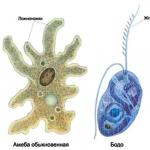Expansion of veins is the number 1 problem of our time. Both women and men of different ages and social status are susceptible to this disease. That is why the prevention and treatment of the disease is a priority for phlebologists. Venotonics for varicose veins of the legs are one of the most widely used drugs that have positive effects in the treatment of the disease.
Venotonics - drugs of complex action, which belong to the group of angioprotectors. This group of drugs has an improving effect on the condition of the vessels of the legs and is used in the treatment of diseases of the cardiovascular system. They are used not only for treatment, but also for prevention.
Venotonics - what it is will be explained in more detail by the attending physician. Self-medication for any disease is unacceptable, and with varicose veins it can have irreversible consequences.
Among the actions that venotonics have, the most important are:
- toning of the walls of blood vessels, which increases the elasticity of blood vessels and normalizes pressure in the vascular bed;
- strengthening of the walls of blood vessels by reducing the permeability of blood vessels and their fragility, which leads to an improvement in microcirculation and a decrease in the formation of edema;
- anti-inflammatory by reducing the formation of pro-inflammatory factors and enzymes, which leads to a decrease in pain during varicose veins on the legs and a decrease in swelling;
- general strengthening of blood vessels by improving blood flow.
Indications for the appointment of venotonics for the legs are:
- phlebeurysm;
- chronic venous insufficiency;
- diseases of the cardiovascular system.
Contraindications for prescribing venotonic drugs are:
- intolerance to the components that make up the drugs;
- diseases of the digestive system;
- pregnancy for a number of drugs.
Classification
According to the composition of venotonics from varicose veins are:
- Plant origin:
- flavonoids, on the basis of which Detralex, Diosmin, Venarus, Vasoket are produced;
- saponins created from natural digitalis glycosides, calendula, licorice, chestnut, ginseng: Aescusan, Herbion esculus, Aescin;
- Rutoside-containing, consist of glycosides with a high content of vitamin P, which act on the vascular wall: Rutin, Troxevasin, Venoruton, Troxerutin;
- Combined venotonics containing components of plant and synthetic origin in their composition, which have additional effects on the legs with varicose veins in the form of a decrease in the inflammatory response, an analgesic effect, a decrease in blood clotting: Doppelherz, Troxevasin Neo, Vitrum Memory, Venorm, Angionorm;
- Synthetic created on the basis of tribenoside, calcium salts: Glivenol, Tribenoside, Calcium Dobesilate;
- Polyvalent, which act on different mechanisms of damage to the vascular wall and have a lymphotropic effect by increasing lymphatic outflow, restoring vascular muscle tone and activating blood circulation in small capillaries. Such venotonics cause an outflow of blood from varicose veins, which reduces pain in the legs and their swelling: Detralex, Troxevasin, Aescusan.
According to the form of release, they distinguish:
- Venotonics for external use (cream, ointment, gel);
- Preparations for internal use (tablets, capsules, injection solutions, suppositories).
Application during pregnancy
The use of venotonics during pregnancy is permissible only after consulting a pregnant woman with an obstetrician-gynecologist and phlebologist. Self-treatment for varicose veins is strictly prohibited, as this can cause a threatening spontaneous miscarriage or childbirth, as well as have a teratogenic effect on the fetus.
The appointment of venotonics is carried out according to the trimers of pregnancy.
- In the first trimester of pregnancy for up to 12 weeks, it is possible to prescribe only drugs for external use in the form of ointments, creams or gels.
- In the second trimester of pregnancy, it is possible to prescribe drugs inside.
- Preparations based on troxerutin, diosmin and hesperidin (Detralex, Troxevasin, Phlebodia 600) do not have contraindications for the period of pregnancy.
During pregnancy, the legs can be treated in other ways. This and much more is discussed in detail.
Venotonic preparations in tablets and capsules
Venotonic preparations for varicose veins of the legs, which are available in the form of tablets or capsules, are divided depending on which component is included in their composition:
Venotonics containing Diosmin and/or Hesperidin. This group of drugs has decongestant, anticonvulsant, analgesic effects, as well as improved microcirculation and tissue trophism:

Preparations based on Diosmin:
- Vasoket, tablets of 15 or 30 pieces, German manufacturer;
- Venolek, tablets of 30 pieces, Russian pharmaceutical company;
- Phlebodia 600, tablets of 15 or 30 pieces, French manufacturer. The drug is described in detail on.
Venotonics containing Troxerutin. This group of drugs increases the tone of the vascular wall, has an anti-inflammatory effect and improves blood microcirculation:
- Ginkor fort, 30 capsules of French production;
- Troxevasin 30 or 50 capsules produced in Bulgaria.
Preparations based on Rutozid . This group of medicines for varicose veins based on bioflavonoids can increase the elasticity of red blood cells, reduce vascular fragility, and improve microcirculation:
- Anavenol 60 tablets of Czech production;
- Venoruton 50 capsules from a Spanish pharmaceutical company.
Plant based venotonics with the content, grape leaves, sweet clover, hazel:
- Venoplant, 20 tablets of a German company based on horse chestnut;
- Antistax, 20, 50 or 100 grape leaf capsules, produced in Switzerland.
Biologically active additives based on Diosmin or Hesperidin:
- Venozol 60 capsules or tablets, produced in Russia.
Among venotonics, which are used for varicose veins in the form of creams and ointments, the most common are:
Created on the basis of grape leaves:
- Antistaks, German-made gel.
Biologically active additives based on Diosmin and Hesperidin:
- Venozol, gel from a Russian manufacturer.
Venotonics in food
As a preventive measure for varicose veins in the legs, venotonics contained in food can be used. As a method of treatment, products are ineffective, since a large number of them will be required for the required dosage. However, to maintain the vessels of the lower extremities, the intake of such products is necessary.
From food products with a high content of flavonoids have a tonic effect on the vascular wall:
- red grapes;
- natural grape wine;
- dog-rose fruit;
- all citrus fruits;
- green tea;
- peel of apples and the fruits themselves to a lesser extent;
- buckwheat.
Venotonics are medicines that are used to treat pathological changes in the venous wall. As a rule, the field of application of venotonics is varicose veins of the lower extremities, hemorrhoids, dilatation of the veins of the small pelvis, varicocele. Factors predisposing to the development of venous insufficiency are:
- hereditary predisposition to the development of the disease;
- work activities associated with prolonged sitting;
- excessive physical activity, weight lifting;
- excess weight;
- gender - chronic venous insufficiency is more common in women than in men.
Chronic venous insufficiency develops gradually over several years. For diseases associated with impaired venous tone, in the absence of therapy with venotonics and other means, the development of complications is characteristic:
- Violation of tissue trophism, which, as a rule, leads to the formation of ulcers that are difficult to heal.
- thromboembolic complications.
- Bleeding arising from the affected vessels due to thinning of the vascular wall.
- Inflammatory and infectious complications.
- In order to avoid the development of complications, you should contact a specialist in a timely manner, who will prescribe the necessary therapy.

Medicines that have a venotonic effect can be classified as follows:
- Venotonics containing saponins and flavonoids as active substances.
- Rutoside-containing drugs.
- Combined drugs with venotonic effect.
- Synthetic venotonics.
Almost all venoprotectors are able to influence the muscle tone of the vascular wall and capillary permeability. These are the two main pharmacological effects on which the mechanism of action of drugs is based. Medicines with a venotonic effect are not able to completely cure varicose veins of the lower extremities, hemorrhoids, but their use significantly reduces the manifestation of symptoms such as pain, swelling, and discomfort in the area of vascular damage.
Herbal venotonics
The first group - venotonics containing saponins and flavonoids, are absorbed into the systemic circulation and have a general effect on the body. Such venoprotectors include Detralex, Venarus, Vasoket, Phlebodia. Indications for the appointment of these venoprotectors are varicose veins of the lower extremities, acute hemorrhoids, impaired microcirculation.
Detralex is a venotonic containing a combination of diosmin and hesperidin. These substances are of natural origin. The venoprotector is prescribed for the treatment of symptoms of varicose veins of the lower extremities - pain, heaviness in the legs, a feeling of fullness, swelling, trophic ulcers, leg cramps. In addition, Detralex is very effective in exacerbation of hemorrhoids, including during pregnancy.
However, it is worthwhile to prescribe a venotonic during pregnancy with extreme caution and only in case of urgent need! Treatment of varicose veins and hemorrhoids during pregnancy should take place under the strict supervision of a doctor!
Detralex is not used in cases of hypersensitivity to the components of the drug. It is also not recommended to prescribe a venotonic to women during breastfeeding.

Rules for prescribing the drug:
- To alleviate the signs of venous insufficiency of the lower extremities, venotonic is prescribed 2 tablets twice a day during meals. The course of treatment with venotonic can last up to 12 months.
- Therapy of hemorrhoids in the acute period is carried out in a fairly short period of time. Detralex is prescribed 3 tablets in the morning and 3 tablets in the evening. within four days. Then the daily dose is reduced to 4 tablets per day - 2 in the morning and 2 in the evening for three days. The course of therapy for hemorrhoids is 7 days.
For Detralex, as a rule, the development of undesirable reactions is not characteristic. However, if the dosage of the drug is exceeded, dyspeptic disorders, diarrhea, nausea are possible. Sometimes a few days after the start of the use of Detralex, a headache, dizziness appears. After the abolition of Detralex or a decrease in dosage, these symptoms decrease or disappear completely.
The approximate cost of Detralex for a pack of 60 tablets is 1900 rubles.
An analogue of Detralex is presented on the pharmaceutical market, which has a lower price - Venarus. The drug has an identical composition and is prescribed for the treatment of venous insufficiency of the lower extremities, acute hemorrhoids, including during pregnancy.

Phlebodia 600 is a venoprotector containing diosmin as an active ingredient. The drug reduces the extensibility of the venous wall, increasing vascular tone. At the same time, congestion is reduced. Also, venotonic improves the functioning of the capillary system, has an anti-inflammatory effect, which is important in the treatment of varicose veins and hemorrhoids.
The medicine is prescribed for the treatment of varicose veins of the lower extremities - the drug effectively relieves symptoms such as heaviness in the legs, swelling, pain. In addition, Phlebodia 600 is used to treat acute hemorrhoids.
The course of application of venotonic for dilatation of the veins of the lower extremities is 2 months. Phlebodia 600 in this case is prescribed 1 tablet daily on an empty stomach. Treatment of acute hemorrhoids is carried out for a week, 3 tablets per day.
The drug is not prescribed during pregnancy in the first trimester, with individual intolerance to the drug, as well as during breastfeeding and children under 18 years of age. During pregnancy in the second and third trimesters, venotonic is used to eliminate the symptoms of venous insufficiency of the lower extremities and acute hemorrhoids. Therapy of varicose veins and hemorrhoids Flebodia 600 during pregnancy is carried out only in special cases and under the strict supervision of a physician.
The cost of Phlebodia 600 is approximately 1480 rubles for a package containing 60 tablets.

Rutoside-containing products
The second group is preparations containing rutoside. These include Troxevasin, Troxerutin. Rutoside is a plant-derived substance that is obtained from tea leaves, Japanese sophora, fragrant rue, walnut. Natural venotonics of this group have been used for many years to relieve the symptoms of varicose veins, thrombophlebitis, diabetic vascular disease, and hemorrhoids. Venotonics containing rutoside have a good effect.
Troxevasin can be used during pregnancy in the second and third trimester, if the intended benefit to the woman outweighs the risk to the development of the fetus. Often, a venotonic during pregnancy is prescribed to improve blood circulation and lymph flow in the lower extremities, as well as to alleviate the symptoms of hemorrhoids. During breastfeeding, drugs of this group are not prescribed.
The course of application of a venotonic containing troxerutin is always long - more than a month. Assign the drug one capsule three times a day. From hemorrhoids, the medicine is used in the same way. Simultaneously with rutoside-containing venotonics for the treatment of varicose veins, including during pregnancy, venoprotectors are prescribed in the form of external agents - ointments and gels. For the treatment of hemorrhoids, suppositories with a combined composition are used.
The average price of Troxevasin for a pack of 50 capsules is 265 rubles, in the form of a gel - 210 rubles.

Combined venoprotectors
The third group of venotonics used to relieve the symptoms of varicose veins is Troxevasin Neo. Venotonic, in addition to troxerutin, contains sodium heparin and dexpanthenol. The drug is available in the form of a gel for external use.
The drug has a venoprotective, anti-edematous effect. In addition, due to the content of sodium heparin and dexpanthenol in the preparation, venotonic has an anticoagulant and anti-inflammatory effect.
In addition to varicose veins, the drug is used to treat thrombophlebitis, varicose dermatitis, traumatic injuries of soft tissues. Troxevasin Neo is used for treatment during pregnancy, excluding the first trimester.
Troxevasin Neo can be purchased at a pharmacy for about 280 rubles.

Synthetic drugs
Synthetic drugs that have a venotonic effect are presented on the pharmaceutical market, mainly by means for external use and in the form of suppositories for hemorrhoids.
For example, the most popular drug for relieving the symptoms of hemorrhoids is Procto-Glivenol in the form of a rectal cream and suppositories. Venotonic contains a combination of tribenoside and lidocaine as an active ingredient. The drug reduces the permeability of the capillary wall and increases the tone of the vascular wall, and also has an analgesic and antipruritic effect.
Procto-Glivenol is used to treat external and internal hemorrhoids. The effect of the drug appears almost immediately. Procto-Glivenol is contraindicated in the first trimester of pregnancy, with liver failure and with hypersensitivity to venotonic components.
The cost of a package containing 10 candles is approximately 410 rubles.

Treatment of complications of varicose veins
With venous insufficiency complicated by thrombophlebitis, treatment with venotonics will not lead to the desired effect. Therefore, in such cases, drugs with anticoagulant action are used. One such remedy is Wessel Due F, which contains sulodexide as an active ingredient. Wessel Due F has a venoprotective, anticoagulant and antithrombotic effect.
The drug is available in the form of capsules and a solution for injection into a vein or muscle. Wessel Due F is used in case of deep vein thrombosis and other angiopathy. Treatment begins with the injection of the drug for two weeks, followed by the transition to oral administration. The general course of treatment is 2-2.5 months.
Wessel Due F can be used together with venotonics of plant and synthetic origin. Wessel Due F is not prescribed for reduced blood clotting, hemorrhagic diathesis, and during pregnancy in the first trimester.
The list of drugs used for varicose veins and hemorrhoids is quite large. In addition to drugs with a venotonic effect, pharmacies offer biological additives and cosmetics that are used as adjuvants in venous insufficiency.
The price of Wessel Due F for 10 ampoules is approximately 1690 rubles.

Venotonics and varicose veins of the small pelvis
Currently, the expansion of the veins of the small pelvis among the female population is quite common. As a rule, this defect develops as a result of pregnancy. In addition, varicose veins of the pelvic veins can be the result of "sedentary" work, hard physical labor, various gynecological pathologies. Symptoms of varicose veins of the pelvic vessels are similar to signs of uterine prolapse:
- pain during intercourse;
- drawing pains during menstruation;
- feeling of pressure in the lower abdomen;
- increased urination.
If a similar clinical picture appears, it is necessary to consult a doctor who can differentiate the disease from other pathologies. With the prolapse of the uterus, in addition to these signs, there may be abundant discharge and prolapse of the neck of the organ, which is not typical for varicose veins. On the contrary, if in the clinical picture there is the appearance of venous nodules on the buttocks, labia and thighs, then most likely the pain is not caused by the prolapse of the uterus, but by the expansion of the veins of the small pelvis.
Varicose veins, unlike uterine prolapse, can be treated conservatively with the help of venotonics. In the case of uterine prolapse, as a rule, only surgical treatment is effective.
Venotonics in cosmetology
Another area of application of venotonics is cosmetology. However, for the cosmetic purpose of venotonics, alternative medicine recommends the use. For example, on various women's sites you can find recommendations and advice on the use of a gel containing troxerutin for application under the eyes.
However, professional cosmetologists do not recommend the use of venotonics for facial skin, as they are not intended for this purpose and can cause irritation. In addition, the origin of the "circles" under the eyes has a completely different origin and is not associated with varicose veins.
The use of venotonics on the face may be justified in case of soft tissue injury, when drugs are used as a decongestant. In any case, if venotonics are used on the face, they should be applied under the eyes with extreme caution so as not to damage the delicate skin. Also, before applying the product, it is necessary to do a test for sensitivity.
Treatment with venotonics in modern medicine is quite common. There are different opinions of experts about the effectiveness of these drugs. Some are confident in their effectiveness, others allow their use only as an aid. In any case, all drugs should be used after prior consultation with a doctor who will choose the right dosage and frequency of use, taking into account all contraindications and the risk of complications.
Venotonics are drugs that stabilize the filling of blood in the veins that deliver it from the tissues to the heart. They are used in the prevention and treatment of venous insufficiency, strengthen the walls of blood vessels. If blood stasis forms in the veins, fluid exits the vessels into the tissues. Venotonics reduce pain and inflammation, have a positive effect on general blood circulation.
However, these drugs do not cure the disease, but simply slow down the development of the pathology or prevent its occurrence. Venotonic agents remove the signs of varicose veins and prevent the disease from progressing and causing complications.
The physiological, normal activity of the veins can be reproduced by 2 methods:
- To increase the tension of the venous walls by reducing the muscle elements in the middle of the choroid.
- Reduce the capacity of the capillary walls. Thus, the plasma will not penetrate into the tissues adjacent to the vessels.
Venotonic drugs are of 2 types:
- increasing muscle tone in the vascular wall;
- improving blood circulation.

Venotonics (phlebotonics) - drugs with a pronounced angioprotective effect
The effect of venotonics on the body
These drugs:
- strengthen and tone the walls of blood vessels;
- reduce capillary permeability;
- give vessels elasticity, thereby reducing their fragility;
- prevent the occurrence of swelling and blood clots;
- increase blood circulation;
- have anti-inflammatory and anesthetic effects;
- stabilize the outflow of lymph;
- restore the normal functioning of the vascular apparatus.
Read also:
How to identify varicose veins? Doctors shared a secret
Systematization of venotonic agents
There is no clear distinction between these drugs. Local venotonics are divided (in the form of balms, gels, ointments, creams), as well as suppositories and for internal use (in the form of tablets). At the moment, the most popular preparations of venotonic herbal composition. They have almost no contraindications, are normally tolerated by patients and have a multivalent effect and lymphotropic effect.

Venotonic drugs compensate for the dysfunction of blood vessels by stimulating contractions of the smooth muscles of the vascular wall and reducing capillary permeability.
Before choosing venotonics for varicose veins, you should consult with your doctor. He will select the right remedy for you, taking into account your indications, body characteristics and concomitant diseases.
Tableted venotonics
Tablets or capsules for oral administration are convenient for treatment. The most popular and effective of them:
- "Detralex" - improves the elasticity of veins and tissue trophism, reduces blood stasis in them. Due to the decrease in capillary permeability, the patient quickly disappears swelling and pain. The drug is allowed during lactation and pregnancy, since the active ingredients do not adversely affect the fetus and child. Produced in the form of tablets. Patient reviews about this venotonic are very good. Among the shortcomings, some patients note the high cost, but Detralex can be purchased by plates. The course of treatment is at least 2-3 weeks.

"Detralex" reduces vein extensibility and venous stasis, increases resistance and reduces capillary permeability
- Phlebodia is an effective French-made medicine that eliminates hemorrhoids and varicose veins. The active ingredients of the drug improve microcirculation in the veins, strengthen their walls. The course of treatment is 1 month. With heavy bleeding, acute stages of hemorrhoids, severe pain with varicose veins of the legs, the dose of Phlebodia may be increased until the condition improves.
- "Escin" - is available in the form of tablets and drops for internal use. The drug is aimed at eliminating puffiness, improves the tone of the veins, removes inflammation. The complex effect of the drug on the body makes it possible to prescribe it to patients with various pathologies of the cardiovascular system.
- "Angionorm" - tablets with a vegetable composition. The drug reduces platelet aggregation, improves blood rheology, which prevents the occurrence of blood clots. Subject to the course of treatment, patients observed a decrease in the inflammatory process, a decrease in swelling and soreness of the veins.
- "Venoruton" - eliminates swelling, anesthetizes, removes cramps and symptoms of inflammation. Available in the form of tablets, capsules and gel. Rutin, which is part of the drug, strengthens the vascular walls.

A drug for the treatment of venous insufficiency with a pronounced decongestant, analgesic and anticonvulsant effect
Venotonics for external application
Venotonics - creams and gels are not an independent method of treating varicose veins, they are used in complex treatment. Ointments lubricate the legs, make a tonic massage that stimulates the outflow of blood and lymph.
Their representatives are:
- "Venitan". Available in cream and gel form. In the composition - extract of horse chestnut and leeches. The drug protects tissues from external damage, prevents varicose veins and swelling of the legs, increases the tone of the vascular walls, and stimulates blood circulation. Peppermint oil has a cooling effect when applied;
- "Troxevasin" - comes in the form of a gel and capsules. The drug enhances the tone of the vascular walls, removes swelling. Effective is the complex use of tablets and gel. Heaviness in the legs and pain is eliminated, the vascular network and bruises go away;

Ointment "Troxevasin" has a protective effect on blood vessels
- Faberlic Expert Pharma venotonic cream is an innovative drug that effectively eliminates signs of venous insufficiency and has a curative and preventive effect. The rich composition not only allows you to remove pain, swelling, but also cools and deodorizes the legs. Despite the fact that this remedy is not a drug, it is used to prevent varicose veins.
When using venotonics for varicose veins, only complex treatment receives positive reviews. A phlebologist will examine you, prescribe effective drugs and tell you how to use them.
Venotonics for varicose veins of the legs are prescribed in the composition. The active substances contained in these drugs help to strengthen the muscular frame of the venous vessels, reduce the clinical manifestations of the disease. To improve the functioning of the veins, both systemic and external phlebotonic agents can be used.
When are venotonics prescribed?
The main indication for the use of venotonic drugs is venous insufficiency, which develops with varicose veins, mainly of the lower extremities.
Under the influence of unfavorable factors, together with a hereditary predisposition, there is a violation of the elasticity of the muscle cells of the veins, expansion and deformation of the vessels, and damage to the valvular apparatus. This leads to the fact that the blood from the legs flows poorly, fluid leaks through the wall of the vessels, which provokes the appearance of heaviness in the legs and.
The basis of the treatment of varicose veins of the legs lies, and wearing. In connection with the appearance of phlebotonics on the pharmacy market, interest in their effects in this pathology has increased. The appointment of these funds as a complex conservative therapy is becoming increasingly common.
The rationale for the use of phlebotonic drugs is their pharmacological effect in varicose veins, which is expressed in the following effects:
- prevention and reduction of damage to veins of various sizes;
- decrease in vascular permeability of the microvasculature;
- removal of edema, heaviness in the legs;
- decrease ;
- increased vascular tone;
- inhibition of the inflammatory response;
- prevention of complications of varicose veins (thrombosis, phlebitis,).
Venotonics of plant origin or synthesized on the basis of natural substances are prescribed as a therapeutic and prophylactic agent for any. The pronounced effectiveness of these drugs is noted at the initial manifestations of the pathology of the veins of the lower extremities.
The use of phlebotonics in pregnant and lactating women

An urgent issue remains for women in the first months after childbirth. During the bearing of a child, due to physiological changes in the body of the expectant mother, there is an increase in the load on the veins of the abdominal cavity, small pelvis and lower extremities.
And hemorrhoids are common in women after childbirth, and breastfeeding and the potential danger to the baby if the drug enters the milk limits the use of many drugs.
Venotonics during pregnancy and lactation can only be used as prescribed by a doctor, the benefits of their appointment should exceed the potential harm to the fetus or infant. Permitted systemic drugs () of this group include:
- Escin;
- Glivenol;
On a note!
Local use of venotonics is allowed in pregnant and lactating women, since the absorption of substances into the general bloodstream is minimal. The effect of the treatment increases many times when wearing means of elastic compression (bandages,) 1-2 classes.
Classification
The list of venotonic drugs provided by the modern pharmaceutical industry is long. But there is still no generally accepted classification. There are two main groups of phlebotonic agents used for varicose veins; these are venoprotectors and venotonic drugs of mixed action.

The first group includes substances that protect and strengthen the venous wall. To the second - drugs that, in addition to the protective effect, have the ability to increase the tone of the smooth muscles of damaged veins.
Depending on the method of application, venotonics can be local (external) or systemic (internal). There are various dosage forms of phlebotonizing agents: cream, ointment, tablets, capsules, solutions and lyophilizates for injection.
The table shows the venotonics used for varicose veins of various pharmacological actions, the origin of the active substances and the names of the drugs.
| Pharmacological group | Composition | Tradename |
|---|---|---|
| Venoprotectors | Bioflavonoids (rutoside, troxerutin) | Venoruton, Rutoside trihydrate, Rutin, Troxevasin, Troxvenol, Angionorm |
| Ginkgo biloba leaf extract | Bilobil, Ginkio, Memoplant, | |
| Dioxybenzene derivative | Calcium dobesilate, Doxy-Hem, Doxilec | |
| Mixed action preparations (protectors + tonic) | Bioflavonoids (diosmin, hesperidin) | Vasoket, Diosmin, Hesperidin, Venolek, Phlebopha, Diovenor, Detralex, Fleboven, Angiorus |
| Fruits, seeds of horse chestnut | Escin, Escusan, Anavenol, Escisan, Venoplant | |
| Butcher's needle | Cyclo 3, Cyclo 3 fort | |
| grape seed extract, leaves | , Endotelon | |
| Glucofuranoside derivatives | Glivenol |
Rating of the most effective venotonics
The best venotonics are prescribed to stop the unpleasant manifestations of the disease (pain, swelling, and burning along the veins, heaviness and fatigue in the legs) and prevent. Among the variety of drugs, some are particularly effective.
Detralex

A drug that has a scientifically proven dose-dependent effect in the treatment of chronic venous insufficiency. Available in the form of tablets of 500 and 1000 mg. The basis of the drug are bioflavonoids (substances obtained from the fruits and flowers of plants): diosmin and hesperidin.
Detralex is used orally on a tablet during the day and in the evening along with food. The course of treatment can last up to a year and depends on the dynamics of clinical manifestations, the degree and prevalence of vascular damage.
Detralex is well tolerated, but sometimes side effects such as:
- dizziness, headache;
- malaise;
- diarrhea;
- nausea, vomiting, flatulence;
- stomach ache;
- allergic reactions (rare).
On a note!
The price of the drug is 681-2069 rubles. depending on the dosage and the number of tablets in the package (60 or 30 pcs.). Detralex is released without a doctor's prescription.
Analogues are drugs such as: Venarus and Fleboven.
Troxerutin

Cheap drug, which is a bioflavonoid - a substance of plant origin. Available in capsules of 300 mg of the active substance and in the form of a 2% gel for external use.
The cost of Troxerutin capsules is 190-320 rubles, and the gel is 28-55 rubles. It is released from the pharmacy without a prescription. But before using it is necessary to consult a specialist.
Capsules are prescribed one at a time in 2-3 doses per day. The gel is applied twice daily to the affected areas with a thin layer. The course of treatment continues until the symptoms disappear. Then you should continue taking capsules one per day for a month.
It is possible to use Troxerutin in the form of intravenous and intramuscular injections. The daily dose of the administered drug should not exceed 500 mg. Injections are prescribed only by a doctor. The course of parenteral administration averages 5 procedures.
Analogues of Troxerutin are more expensive drugs: and Venoruton.
Antistax
A natural effective preparation, the main component of which is an extract of red grape leaves. It is available as a spray, cooling gel and capsules. One capsule of Antistax contains 180 mg of the active substance. The packaging of the drug costs from 556-1568 rubles, depending on the number of dosage forms (20, 50, 100 pcs.). Antistax gel can be purchased at an average price of 756 rubles. for 125 ml tube.

Antistax is used for varicose veins, 2 capsules in the morning before breakfast. It is possible to increase the dose, in agreement with the doctor, up to 4 capsules per day. On average, the course of treatment lasts for 3 months. Prophylactically, the drug is prescribed every six months, 2 capsules a day for a month.
The gel or spray is applied to the skin of the legs in a thin layer or by spraying. The drug must be completely absorbed. The drug is used in the morning and evening. The course of treatment depends on the regression of symptoms.
The drug is well tolerated, rarely allergic reactions can occur in the form of a generalized rash, accompanied by itching and discomfort in the stomach. When buying Antistax, a prescription is not required.
A similar drug is Endotelon in the form of enteric tablets.





